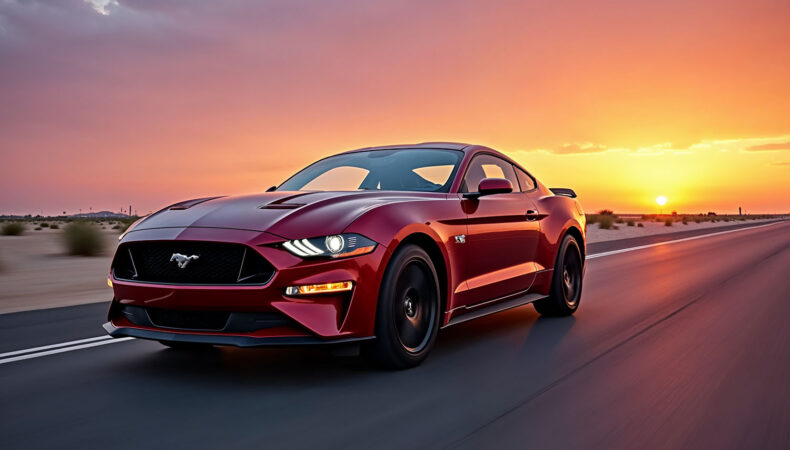Introduction
When it comes to car insurance in the UAE, many factors can influence your premium. One often overlooked aspect is whether your vehicle is GCC-specified or imported. At eSanad, we believe in empowering our clients with knowledge, so let’s dive into how non-GCC vehicles can affect your car insurance premiums in the UAE.
Understanding GCC vs. Non-GCC Vehicles
What are GCC-Specified Vehicles?
GCC-specified vehicles are those manufactured or modified specifically for use in the Gulf Cooperation Council (GCC) countries, including the UAE, Saudi Arabia, Kuwait, Qatar, Bahrain, and Oman. These vehicles are designed to withstand the unique climate and environmental conditions of the region.
What are Non-GCC Vehicles?
Non-GCC vehicles, often referred to as imported vehicles, are those manufactured for markets outside the GCC. These can include American, European, or Asian-spec vehicles that haven’t been modified for Gulf conditions.
How Non-GCC Vehicles Affect Insurance Premiums
Insurance premiums are calculated based on risk assessment. Non-GCC vehicles often pose a higher risk in the UAE environment, which can lead to increased insurance costs. Here’s why:
- Environmental Adaptability: GCC-spec vehicles are built to withstand extreme heat, dust, and humidity. Non-GCC vehicles may be more prone to breakdowns or damage in these conditions.
- Repair Costs: Imported vehicles might require specialized parts or expertise for repairs, potentially increasing the cost of claims.
- Resale Value: Non-GCC vehicles often have a lower resale value in the UAE market, which can affect the insured value of the car.
- Compliance Issues: Some non-GCC vehicles may not fully comply with local regulations, potentially leading to additional risks or legal complications.
Key Differences Between GCC and Non-GCC Vehicles
Understanding the specific differences can help you appreciate why insurance premiums may vary:
- Enhanced Cooling Systems:
- GCC-spec: Upgraded air conditioning and engine cooling systems to handle extreme heat.
- Non-GCC: May have standard cooling systems not optimized for Gulf temperatures.
- Dust Protection:
- GCC-spec: Enhanced air filtration systems to protect against fine desert dust.
- Non-GCC: Standard air filters that may not be as effective in dusty conditions.
- Paint and Exterior:
- GCC-spec: Special paint formulations and materials to resist sun damage and sand abrasion.
- Non-GCC: Standard paint that may degrade faster in harsh Gulf conditions.
- Suspension and Tires:
- GCC-spec: Reinforced suspension systems and tires suited for both city driving and occasional off-road use.
- Non-GCC: Standard suspension that may wear out faster on rough roads or in high temperatures.
- Rust Protection:
- GCC-spec: Enhanced undercoating and rust protection, especially important in coastal areas.
- Non-GCC: Standard rust protection that may be insufficient for high-humidity Gulf environments.
Impact on Insurance Premiums
Given these differences, here’s how non-GCC vehicles typically affect insurance premiums:
- Higher Base Rates: Insurers often start with a higher base rate for non-GCC vehicles due to the increased risk factors.
- Limited Coverage Options: Some insurers may restrict certain coverage options for non-GCC vehicles or impose higher deductibles.
- Increased Scrutiny: Non-GCC vehicles may undergo more thorough inspections before insurance approval, potentially leading to additional costs.
- Depreciation Factors: Insurance companies may apply different depreciation rates to non-GCC vehicles, affecting claim payouts and premiums.
eSanad’s Approach to Non-GCC Vehicle Insurance
At eSanad, we understand that many UAE residents and expats own imported vehicles. While these vehicles may come with higher insurance costs, we strive to offer competitive and fair pricing. Here’s how we approach non-GCC vehicle insurance:
- Personalized Risk Assessment: We evaluate each vehicle individually, considering its specific features and adaptations for the UAE environment.
- Flexible Coverage Options: We offer a range of coverage options to suit different needs and budgets, even for non-GCC vehicles.
- Transparency: We provide clear explanations of how your vehicle’s specifications affect your premium, ensuring you understand what you’re paying for.
- Expert Advice: Our insurance specialists can guide you on potential modifications or steps to take that might help reduce your premium for a non-GCC vehicle.
Tips for Non-GCC Vehicle Owners
If you own or are considering purchasing a non-GCC vehicle, here are some tips to potentially reduce your insurance costs:
- Vehicle Modifications: Consider making UAE-specific modifications to your vehicle, such as upgrading the cooling system or enhancing dust protection.
- Regular Maintenance: Keep detailed records of regular maintenance to demonstrate responsible ownership to insurers.
- Security Features: Install additional security features to potentially qualify for discounts.
- Compare Quotes: Different insurers may assess risk differently. Always compare quotes from multiple providers.
- Bundle Policies: If you have multiple insurance needs, bundling policies with one provider might lead to discounts.
Conclusion
While non-GCC vehicles can indeed lead to higher insurance premiums in the UAE, understanding the reasons behind this can help you make informed decisions. At eSanad, we’re committed to providing transparent, fair, and comprehensive insurance solutions for all types of vehicles. Whether you drive a GCC-spec or imported vehicle, we’re here to ensure you have the right coverage at the best possible rate.
Remember, the key to finding the right insurance is not just about getting the lowest premium, but ensuring you have adequate coverage for your specific needs. If you have any questions about insuring your non-GCC vehicle, don’t hesitate to reach out to our expert team at eSanad.
Last modified: October 6, 2024


